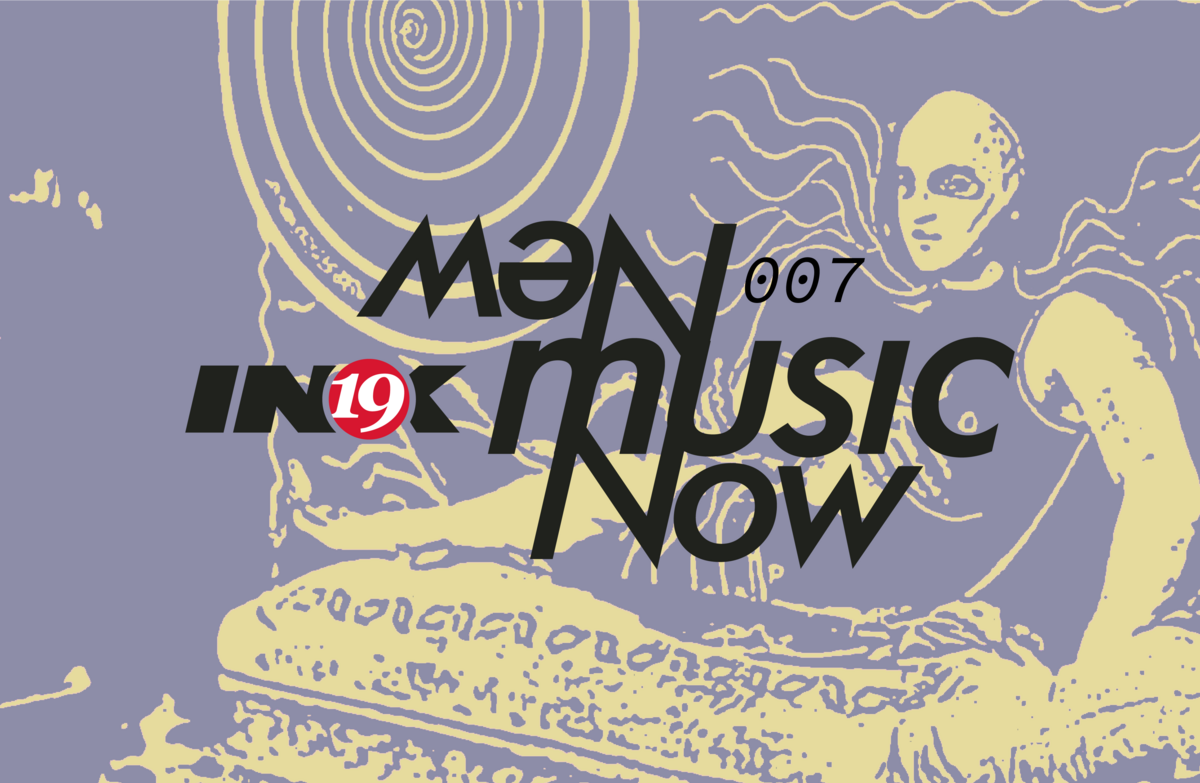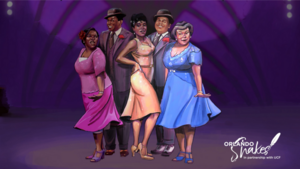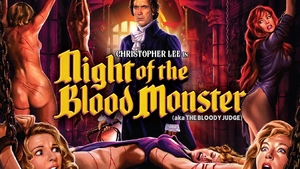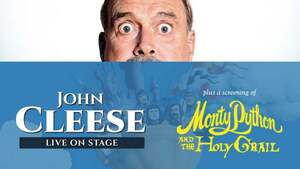
New Music Now 007: crêpe girl
with Julius C. Lacking
by Ian Koss
Listen and subscribe to New Music Now.
Episode 007 features new music by Jack White, Snail Mail, and crêpe girl, and 2 sweet Yoko Ono covers from Stephin Merritt and Deerhoof. Stick around for joy, with Ink 19’s Judy Craddock, KAFM’s Julius C. Lacking, and Grand Junction’s Eliza Gregoire, recording as crêpe girl. Bon appétit. ◼
—
TRANSCRIPT
Judy: Hello, and welcome to this episode of New Music Now. My name is Judy Craddock, and I write for Ink 19 and host two shows on KAFM in Grand Junction, Colorado: Root Down Radio and Probable Cause. I’m here with our guests–please introduce yourselves.
Julius: I am Julius C. Lacking from Ink 19, and I also do a music broadcast called The Lacking Organization on radio station KAFM here in uh, Colorado’s Grand Valley.
Eliza: Hello. Um, my name is Eliza, I’m 21 years old, and I live in Grand Junction, Colorado. I’m a musician and a producer, and I’ve been releasing my music for about two years now.
Judy: All right, thanks everybody.
[00:01:53] FEAR OF THE DAWN, Jack White
Judy: My album pick is Jack White’s Fear of the Dawn on Third Man Records, of course. The album feels like Jack returning to a playful experimental place, both musically and personally. There’s a real element of surprise in almost every track. I feel like he’s really, after so many years of, I thought he had found his voice, he’s found his voice and he’s a happy guy.
Julius: He really has taken complete control of the sonic supply chain, right? I mean, he’s, uh, I mean, building his own effects and getting his own instruments made and really all the way almost from the tree to, uh, the speaker cone, he’s got his, his hand in it somehow. Isn’t he, is he manufacturing vinyl in there too now?
Judy: He is, he has actually opened up a vinyl manufacturing plant in Detroit, hired people, I believe his 91-year-old mother even got to press a piece of vinyl. Uh, he’s truly a curator of music and the vinyl pressing in the United States has been a big turning point in terms of that supply chain and just getting albums out, not just for himself, but for a lot of other artists as well.
Eliza: Yeah, I find this amazing because, he’s making a difference for the whole industry and I know myself, I’ve heard. The delays for pressing a vinyls actually more than a year or something like that. So like, it’s cool to have a musician that’s helping that, especially somebody like Jack White. What I notice with this album, I hadn’t listened to it until we met up, but I think the guitar effects really were intriguing to me and how everything sounded compressed, it was just like so artistic in its own recording way. And that’s something I really like. And I really appreciate when somebody takes their own art into just the sonic way they’re going to be recording it. It’s just very experimental. Jack White’s also my uncle’s favorite artist, so I always think of my uncle when I think of Jack White.
Judy: Great. I’m glad we’re in agreement. I feel like, there’s another album coming out in fact in another month and he’s going to have people going, oh wow. This is the Jack White I know, and now I love him. So at least I’m hoping so.
Eliza: Yeah, I’ve always wanted to visit the Third Man Records. Isn’t there one in Nashville? Is isn’t that where it’s from?
Judy: Yes,
Eliza: They’re like creating a sense of community. It sounds like.
Judy: Yes, very much so.
Eliza: Awesome.
Judy: So this first track, I chose Hi De Ho, featuring of course Q-Tip Jack has covered other songs before, but picking up this Cab Calloway piece is really interesting to me in that he didn’t destroy the integrity of the original, but put his own take, and then adding Q-Tip, the playfulness is just mind blowing to me. Let’s hear Hi De Ho.
[00:04:44] Hi De Ho, Jack White
Judy: All right. I can’t imagine what this will feel like live, but the energy coming out of that intro is like, they’re warning you something’s going to happen. It’s not going to be what you think. I grin from ear to ear. I don’t know the, uh, the technical aspects of how they put the sound together, but Jack’s vocals, the way he can modulate his voice, is just endless. And taking Cab Calloway, taking liberties with Cab Calloway, adding in Q-Tip’s freestyle, everything about the song to me says, we’re just going to play with music and have fun and blow people away at the same time, and we’re going to make it look so easy. The first time I heard this track, I really thought this is just what music is about. It can be heavy, it can be dark, there was an ominous tone to that intro, but it also is supposed to be fun.
Eliza: Yeah, I think fun is the best way to describe that. And it’s also one of those songs that captures you right away, which some songs take a while for me. And I like both ways, but that definitely is catchy already.
Julius: It has that “call to prayer” sound to kick things off, right? You know, it’s like, uh, I think we’ve been conditioned by movies and, you know, just the dramatic use of that, to associate it with the calm before the storm, right?
Judy: Sure. It’s the Jaws music before the shark comes in, so it’s just this incredible… I did read that, he, he was literally in his kitchen and heard the song come on the radio one day and decided he just needed to record it. So this is, this is what we need right now in the world is just people saying, I just need to record this song, and do it.
Judy: All right. The next track I chose is off of the same album, Fear of the Dawn. And it is Eosophobia which is a literal, morbid fear of daylight and dawn. And I think there’s no better person to sing about this than Jack. I feel like he has definitely come through a period where he, things felt darker for him and the lyrics of the song just, just describe a sense of hope, even though it sounds morbid. Let’s give it a listen.
[00:09:23] Eosophobia, Jack White
Eliza: There’s so much energy in that one. And every song I’ve heard on this album now, um, seems like it would be amazing live, which is really cool. I can just imagine a really, really good live show with this stuff. and yeah, it just seems really fun and super, super energetic.
Judy: Oh, my gosh, the playfulness in this track, the dub, uh, these telltale guitars this tempo changing the light and soft contrast with the menacing lyric. But again, I, sense that hope in the end of the lyrics saying when I lose my fear, I’ll be able to love you, and knowing that he just got married and, and life is good for Jack, I feel like well, as he says, forgive my grammar, but I just think this is awesome. And I feel like he, he played with this one so well in that contrast of light and dark and, it reminds me a little bit of some sort of Joe Strummer playfulness, The Clash, in that early part of the song. Score one for Jack.
Julius: It’s great. I love it. When you can hear an album and realize that, uh, you know, the person that recorded that album or the people that recorded that album have been listening to exactly the same music you have been listening to. And, you know, I think Jack White and I both love King Gizzard and the Lizard Wizard because as soon as I heard this track, I was like, oh. Yes, you know, if I wanted to write a king gizzard and the lizard wizard track, this is what I’d be doing. Um, Yeah. Really outstanding, uh, variety of, influences and styles right there in that one album and sometimes right in the single song, right?
Judy: Yeah. I’m glad you guys like it. I feel like this album, even if I never hear it live is just one, one to check out. All right. Julius, let’s hear about your pick.
[00:13:31] OCEAN CHILD: SONGS OF YOKO ONO, Various
Julius: Okay, So, uh, my album, I chose is called Ocean Child: Songs of Yoko Ono. It has a star studded cast of, uh, indie music artists, taking on some of Yoko Ono’s musical catalog and, you know, a lot of people have an opinion about Yoko, uh, but very few of them are actually informed opinions. I think, uh, Yoko Ono is a good musical litmus test. If all you can say about her is that she broke up the Beatles or her songs are weird, then you probably just don’t care a lot about music, let’s say. Uh, I’m really happy to see all these artists stepping up and kind of giving these songs their proper due and, and hopefully, uh, making some people reevaluate what they think about Yoko Ono and you know, her musical contributions.
Eliza: Yeah. I personally really like compilations, especially when it’s a great artist like this, and kind of like covers of them. And the artists on this one I really like, especially Japanese Breakfast. I find that really beautiful other artists giving their time and covering something in their own way.
Judy: I agree. I think, uh, as Lizzo would say, it’s about damn time that Yoko gets some love from all of these artists and, and I’ve, I never joined that camp of, she broke up the Beatles, but I really love hearing all these artists, honoring her with covers. So, looking forward to hearing more of this.
Julius: All right. So the first track I’m going to play with you is called Listen, the Snow Is Falling. This track was recorded by Stephin Merritt, uh, who is like the voice and guiding light behind a band called The Magnetic Fields. I don’t know if you guys are familiar with them, but, uh, really a very unique sound all by himself. And, it’s a beautiful song. Here we go.
[00:17:02] Listen, the Snow Is Falling, Stephin Merritt
Julius: All right.
Julius: What a distinctive voice, it’s hard to hear that voice and not instantly be drawn in and just kind of stop what you’re doing, to let it soak in. And really it’s such a beautiful song and, the ambiance given to the song by the, these like water drops and the kind of over reverberated organ, I’m not really sure even what that is, uh, it’s just, uh, really pulls the whole thing together. And I’m also intrigued because you know, I really like it when the snow is falling, because everything is so quiet, you know, to me the sound of snow is silence, so, to say, listen, the snow is falling is really getting into the heart of what Yoko Ono did, you know she was a real incisive performance artist. She saw things that a lot of people didn’t, you know, I guess that makes her a poet more than, uh, more than a performance artist, but still, uh, what a great track.
Judy: Hmm. Yeah, I agree. I feel like when you said performance artist, exactly how I’ve always seen Yoko and maybe that’s why she has been misunderstood by so many, is that, our ears and eyes aren’t attuned to performance art as much as, where’s the hook, what’s the song, I need to hear a hook. Uh, Yoko is, is in her own world, but I think it’s so relatable and yes, Stephin Merritt’s voice on this is perfect, because just like in Book of Love, um, anything Magnetic Fields will make you stop what you’re doing, but he has an ability to translate quiet while musicality is going on, either behind him or even if you’re just imagining it. And he’s singing a capella, so beautiful track. I loved it.
Eliza: Um, one key thing that I noticed when I listened to Yoko’s music and even this cover of it is, uh, I think she takes sound and music and she makes you be able to see it. It turns into a visual thing for me, which is really cool because not all music does that, but like right when I listened to her, I can see a picture of like something that it makes me think of. And especially on this one with the snow, of course, um, I really liked this.
Julius: All right now, my next track is going to be a contrast. It is called No, No, No, and it is by the American band Deerhoof.
[00:19:28] No, No No, Deerhoof
Eliza: The first thing I noticed was the drums. And I just like when they’re really in the front like that, and that’s personally what drew me to this track.
Julius: So deerhoof, have been around for a long time. And, you know, I’ve always felt that they were carrying some of that Yoko Ono torch, uh, not, not just because they have a Japanese singer that kind of takes some of those same vocal mannerisms, but just that whole chaos that they bring uh, and that feeling of instant anxiety that they can produce.
Julius: Um, I also found it interesting that this track is called No, No, No. I mean, obviously Yoko Ono wrote it, but, uh, are you guys familiar with a story of how John Lennon met Yoko Ono?
Judy: I am not.
Julius: John Lennon got invited to an art showing of Yoko Ono’s and he was there and he was pretty skeptical of the whole thing. He thought it was just like, you know, of course I got invited, I’m John Lennon and they want people to see John Lennon at this art gallery.
Julius: But then he saw this one piece that was a canvas, and it was stuck to the ceiling and, so you have to climb a ladder, and you use the magnifying glass to look at this tiny writing on the canvas. And when you actually read that, all it said was yes. John Lennon thought that it was brilliant that you know, if it had said no, or fuck off, or something, that it would have been, you know, just typical tedious tripe. So that’s kind of what I think of when I see a song titled No, No, No by Yoko Ono. It’s really a good, compact, musical box for, for everything from the beginning to the end.
Eliza: I really want to listen to everything now, like a lot. So. I keep listening to the same thing because I get obsessed with something and you know, there’s a good part about listening to something over and over. Cause you learn new things every time about the same song, but I also could use some new sound.
Judy: This track reminds me more of the Yoko that I in quotes grew up on. I remember this chaotic sound. My parents didn’t understand it. I didn’t understand it, but I was intrigued by it. And it’s chaotic, but it’s melodic. And, and then I hear the poetry, so I can’t wait to pick up this album. I’m just, I’m really intrigued by the whole thing. It is a blast of noise. I can’t imagine what an honor it would have been to cover it. And that’s Deerhoof.
Eliza: Great.
[00:23:30] INTERLUDE
Judy: All right. Let’s let Elisa introduced her pick.
[00:24:21] VALENTINE, Snail Mail
Eliza: Alright. So my pick was Snail Mail’s Valentine. This has been a really important album to me and just her and her band have been really important to me over the years, but this one really, I think, hit even closer to home for me. And, I think the main reason is the songwriting and the production together. Knowing her first album Lush so well, it was really cool to see the differences with this sophomore album. And yeah, I really, really appreciated it.
Judy: Oh, man, I am new to Snail Mail, I must admit. I actually sort of just played some on air alongside your music, Eliza and it’s, I can see why it’s perfect. And there are these connect the dots that radio people like to do, like, Ooh, what if, and then here’s this, and I can see the connection and I’m absolutely over the moon now. And now I keep looking for more Snail Mail to put on the radio, which is what it’s about.
Eliza: I’m honored because when I hear that people connect my music to, other artists I look up to, I don’t personally see it, but I feel it, because I basically learned from them. So it’s really cool when that happens. So thank you.
Judy: Yeah. It’s a natural connection. Very good.
Eliza: Sure.
Julius: Yeah, yeah, I mean, I think it’s just one more of the current fantastic crop of these, uh, singer songwriters that just put everything out on the record, you know? Snail Mail, we recently talked about Aldous Harding, uh, J Som, and, you know, Bachelor and all, all those projects. They really, just outstanding approach to writing a song. It’s, it’s refreshing. I don’t know what’s new about it, but it definitely stands out.
Eliza: okay. So this is my first truck that I chose off of this album. It’s one that automatically caught my ear The drums and the bass together really felt really good to me. Usually I noticed musical things way before lyrics. And, I mean, I wish I’d noticed lyrics more, but usually that comes after for me. So this one was definitely the, like the musical breaks with the drums. And I liked the line sucker for the pain. Just this whole song felt really good to me. So I hope you like it. This is Ben Franklin by Snail Mail.
[00:26:43] Ben Franklin, Snail Mail
Eliza: Yes. So I really, really liked the song. and then when I do listen to the lyrics, I think it might mean more than just a breakup, but to me, that’s what it makes me think of. And I like the line then this time I really tried, because that’s like just a common theme of growing is this, you keep trying to be better and sometimes it’s you still fail. she doesn’t, it doesn’t sound like she just gets in a booth and performs what she wrote. It’s way more than that. Like you were saying, like she puts everything out there, and she even creates a space in her recording where she puts it out even more than like she has the lyrics and the music written, but she takes it a step further through her performance. And I really admire that.
Julius: This, uh mid-tempo stuff just feels like it’s unstoppable. You know, it’s not fast and it’s not slow, but it’s just going to not let up. it’s very distinctive sound. And like you say, she really puts all that emotion on top of it. And it’s such a great mixture.
Judy: I’m enamored by her voice. I hear elements of other artists I really love right now. Phoebe Bridgers, Japanese Breakfast, Soccer Mommy. This is not about being stuck in the past, but just this, the essence of what was this golden time of the late 1990s, early two thousands.
Judy: And I realize Eliza is coming into this as, as a newer artist, but I think what people are craving is the songwriting that people can say, I get it. Damn, this time I really tried. Whether you’re 19 or you’re 91, you have those cycles in life and she has captured this. And, and so I’m loving the rhythm of the song. Again, the mid-tempo speaks to so many people and it definitely speaks to me. I can hear, it sounds old fashioned, but I can hear what she’s saying.
Eliza: Yeah.
Judy: And that’s what I love. Yeah. We can hear the lyrics here.
Eliza: I saw her live and it was even more incredible. I like, was expecting to be blown away, but not as much as I was. And it was just so cool. I think she’s a rockstar, like really, really actual rockstar.
Judy: All right. You heard it here first.
Eliza: So this is the second song I chose off of Valentine by Snail Mail. It’s called Forever, Sailing. And it’s one of those songs that, it’s absolutely beautiful and it feels just so soft and makes you emotional. And it’s interesting cause it’s a really stripped song.
Eliza: I really liked this one. This is Forever by Snail Mail.
[00:30:41] Forever, Snail Mail
Eliza: So this song, I really enjoyed the sample that Lindsay used in this. And usually I really like sampling, but I usually don’t fully understand like the reason for it. And just, I personally haven’t done it myself either, but I thought this was used in a very, very nice way.
Eliza: And it like brings a feeling that you’ve already felt because of that song, You and I. And I just thought it was a beautiful way of doing it. And. It’s just another nice, like the tempo was nice on this one too. And I like the line, um, 11 months, and still, because kind of like the other line where it’s like this time I really tried, it’s kind of like the guilt of it’s been 11 months, I should be over it by now, but I’m not. So she’s just being very vulnerable and I like that part of it.
Judy: yeah, I heard more range in her voice on this track than I did in the other one. Not better or worse, just really some nice range and a little more throaty. Uh, you can see why she is a rockstar is that she’s got the ability to interpret songs completely different.
Judy: And, and I just really enjoyed it. I, I agree that the drum groove the whole loop, it just puts you into a mode of relaxed simplicity. Mid-tempo where you can really just concentrate on the lyrics. And the vulnerability is so important here. So I think she’s, she’s gonna make a lot more fans. She’s already made one of me and it’s going to just grow from there. So.
Julius: I really love these like dense lush arrangements that for as, as much as they have going on, they still have to compete with the lyrics, you know, and the vocal delivery. but it’s a good contrast because sometimes when you have the opposite, of just all, all that raw emotion against a very simple spare background, it’s too much, you know, you need the contrast.
Judy: All right. Thanks so much, Eliza, your picks were fantastic. Uh, but now I want tod take some time to talk about you and your music. I, was introduced to Eliza’s music actually through a small venue in Fruita, Colorado called Cavalcade. Crepe girl’s sound is the sound I had been looking for so I was immediately impressed. I’d really liked to hear more about you now. And let’s talk about you and your music.
[00:34:32] New tracks by crepe girl
Eliza: I appreciate that a lot. Thank you. I guess I make indie music. If that’s what you want to call it. I came from a place that doesn’t have any music scene. There’s nothing at all. And so all of my music scene to me is just you know, Snail Mail and people that I admire a lot and I look up to that I don’t personally know really. So I kind of just did my own thing like online. I was really focused only on putting out music and I was never thinking of performing it until a couple of my friends kind of pushed me to, and I’m really thankful they did because it’s way more special when you’re impacting a community.
Julius: Yeah, I know what you mean, you know, in places like this, there’s just not a whole lot of bands coming through. So people just have to jump in and do it all themselves. And, uh, you know, sometimes you get very strange things happening just because there’s no existing model coming in from the outside, telling you what to do.
Judy: Absolutely. All right, Eliza, do you want to tell us a little bit about this track that we’re going to hear?
Eliza: Yes. So Je T’aime is one of my favorite songs I’ve written. I think production wise. I really liked how it turned out, because there’re all these songs that have this specific structure, you know, like verse, pre-chorus, chorus, verse, pre-chorus, chorus, bridge, that’s great for a lot of songs, I think. But this one, like I just went with how I felt and I have no idea what the structure is, but it feels good. And I was also happy to incorporate harmonies for the first time, really.
Judy: I actually saw that that track is part of the playlist on Spotify’s Fresh Finds Indie, which is pretty cool. So we should listen to a part of this track. It’s lovely.
Eliza: Yeah, this is Je T’aime.
[00:38:11] Je T’aime, Crepe Girl
Judy: Eliza, I love hearing you sing in French and English. I think, again, that adds to the dynamic. It’s not a gimmick, it’s not kitschy. It’s just you being you. Again, how do you enjoy going back and forth and, and using languages in your music?
Eliza: Yeah, I love it. And what’s interesting is I always do it for different reason and I never sit down and be like, I’m going to write like a verse with French, or, like it kind of just happens because for this one, it lyrically worked better. For my recent song, Try Me Out, I use French for the rhythmic aspect. It just sounded, like it fit better rhythmically. And so it’s just fun to use the language, um, for different reasons. And I’m really happy with how it feels on this one. And I liked that I could name the song Je T’aime, because I think most people know what that means, but if they don’t, now they know what Je I think. Yeah, maybe. Yeah.
Judy: in the other track, and then in Je T’aime, there’s a point where it just flows better and the context of the language and the, the sounds that come out just make more sense. So I love that you do that. I love this track. I remember hearing it a while back. It’s wonderful.
Eliza: Thank you. I never thought of it as like a love song until now when I perform it, it just feels like a lighthearted, just like love song, which is fun.
Julius: I love how full everything sounds and, you know, you, you sound so relaxed and confident in, you know, delivering the lyrics regardless of the language. It’s a really in incredibly catchy piece of music.
Judy: Yeah
Judy: Okay, Eliza, and what else do you have for us? I see that you have another check picked out.
Eliza: Yeah. So this is my pretty recent song. It’s called Someone, Someone Real, and it’s my first collaboration, which was really fun. Um, it’s with my friend, Nick Wagen. Nick and I met through a mutual friend online on Instagram. And we actually met for the first time, five days before the release, and we recorded a music video for it. Looking back, it was crazy that it just like came together so naturally, but basically I recorded a demo of the guitar bass and drums, just the, whole melodic kind of catchy part of it. And then Nick went in on the melody vocally, and then I went on in, on my verse and then he added this crazy part of the end that kind of did a whole 180 to the song, which I think makes the song.
Eliza: And so it was just really cool to learn from somebody because everybody works differently. And this is Someone, Someone Real.
[00:43:27] Someone, Someone Real, Crepe Girl
Eliza: I think it’s one of my most upbeat, fun songs alongside of my song I Try. One of my favorite parts of this song is the way it switches at the end and it ends kind of really relaxed compared to the beginning of the song. And yeah, I was just really happy to do a collaboration.
Julius: You know, I’m a big fan of that moment where it’s been a man singing and all of a sudden you hear the woman coming loud and clear and you know that you’re going to hear a different side of the story just right away. You know, it’s, it’s either a different story or a different perspective, but yeah, even, uh, The Human League, Don’t You Want Me.
Eliza: I’ve never done that where I have to come in and like, try to fit with the song already feels like, and that was really cool to kind of learn to do, but I was like, I don’t know. I could go any direction with this. And he ends with, I just need someone, someone real. And then I come in, I say, I just need someone, someone real, almost in a way of like, it can be interpreted different ways, but in my way, I was kind of like mocking him I mean, not him personally, but, but you know, the, the
Julius: No, no, but.
Eliza: Yeah.
Julius: What I mean is, that’s what I need, is the con.. that contrast and all of a sudden, you know, it’s, it’s like you’re watching a show and it’s not what you thought it was going to be.
Eliza: Thank you.
Judy: I think Nick’s voice is a great complement to yours. Uh, what a great first collaboration I’d like to see you do more of that. I think you stand alone very well on your own, but I agree that the switch up the telling different stories, the male, female dynamic, uh, everybody from Johnny and June to Human League have done this sort of now, let me tell my side of the story and it’s not easy to pull off and it can seem sort of artificial, but I think you did a great job with this.
Judy: And this is also, I noticed when I listened to this track the first time, like it’s really playful. I can’t wait to hear her do it live and just, I can see where you’d want to just go a little crazy. So.
Eliza: Yeah.
Judy: That’s awesome. Thank you all for participating in New Music Now. Julius, where can we hear your radio show?
Julius: Yes, there is a schedule and links to a stream on my website at, uh, lacking.org.
Judy: And Eliza? Where can we find out more about you and your music?
Eliza: So my Spotify has all new songs, Apple Music, and my website has some like merch, but yeah, I think Instagram is probably the best.
Judy: And what’s your Instagram handle?
Eliza: It’s @crepegirll with two l’s, because somebody has @crepegirl.
Julius: All right.












